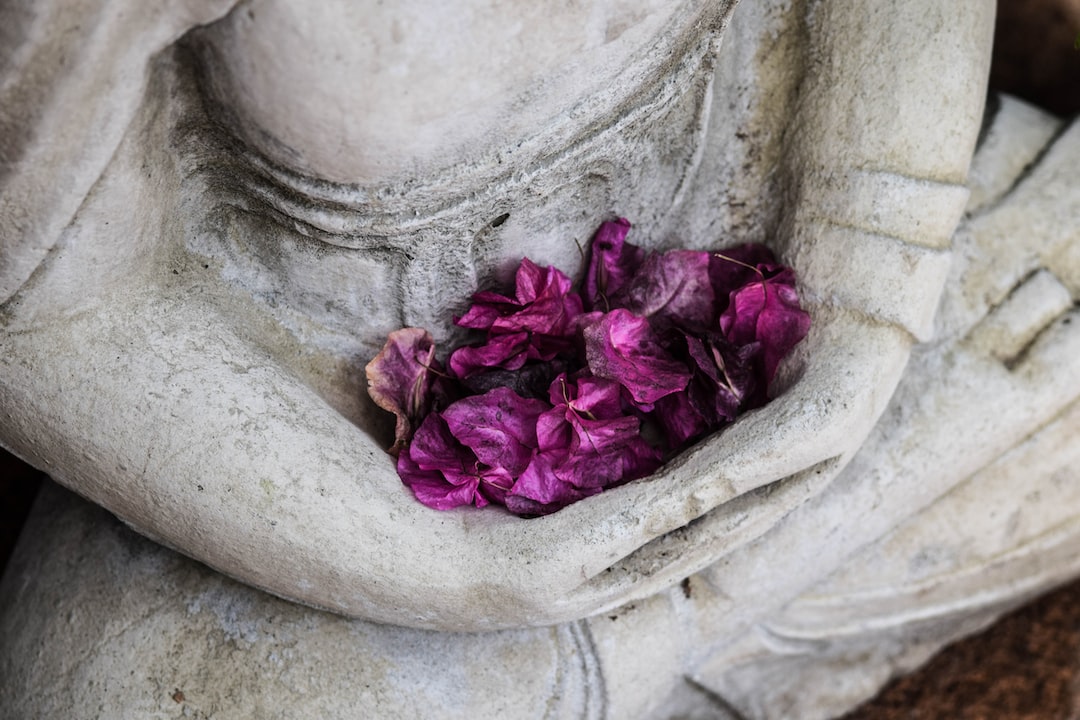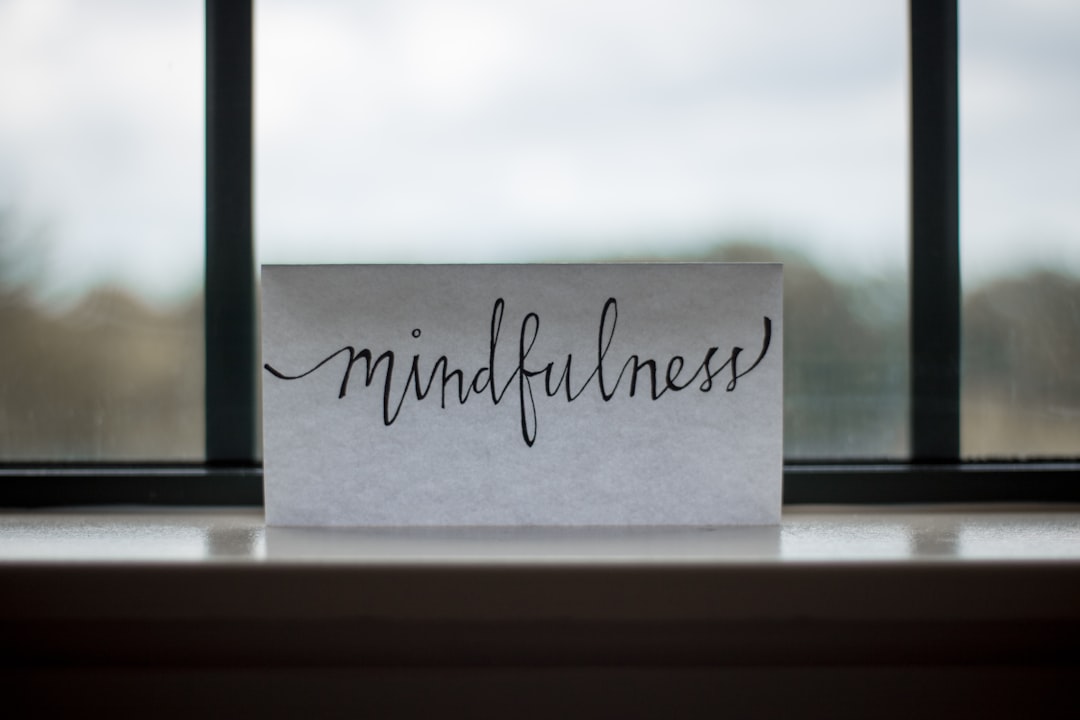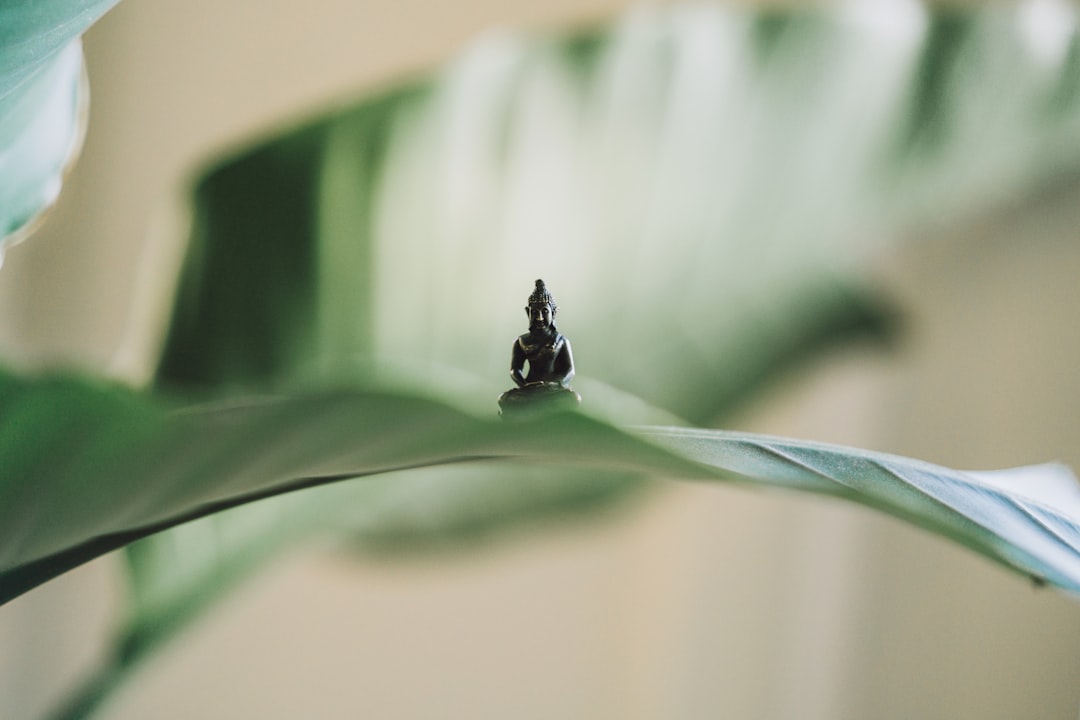Breathing is an everyday activity that we often take for granted. We breathe without even thinking about it, but what if we started to pay attention to our breath? Mindful breathing, also known as meditation or pranayama, is a simple yet powerful tool for self-reflection and personal growth. It is an ancient practice that has been used for centuries to calm the mind, reduce stress, and increase focus.
In today’s fast-paced world, we are constantly bombarded with distractions and demands on our time. We find ourselves running on autopilot, going through the motions of our daily lives without really being present. Mindful breathing helps us to slow down and reconnect with ourselves. By focusing on our breath, we become more aware of our thoughts and emotions, which allows us to better understand ourselves and others.
The benefits of mindful breathing are numerous. It can help reduce anxiety and depression, improve sleep quality, and boost immune function. Additionally, it can increase our capacity for empathy and compassion towards ourselves and others.
In the following sections, we will explore the different aspects of mindful breathing and how they can positively impact our physical and mental health. We will also provide practical tips and techniques for incorporating this practice into our daily routines.
The Breath as an Anchor: How Mindful Breathing Grounds Us in the Present Moment
Mindful breathing is a powerful tool that helps us stay grounded in the present moment. It is an anchor that we can rely on during moments of stress, anxiety, or uncertainty. When we pay attention to our breath, we become more aware of our surroundings and ourselves.
The breath is always with us, and it serves as a constant reminder to return to the present moment. By focusing on our breath, we can let go of distractions and calm our racing thoughts. It is a simple technique that can have profound effects on our well-being.
Through mindful breathing, we can become more mindful of our thoughts, sensations, and emotions. It allows us to observe them without judgment or attachment. This non-judgmental awareness helps us become more self-aware and gain a deeper understanding of ourselves.
In addition to grounding us in the present moment, mindful breathing has physical benefits as well. It can help reduce stress, lower blood pressure, improve lung function, and even boost our immune system. By bringing our attention to our breath, we are promoting a state of relaxation and calmness that can improve our overall health.
Incorporating mindful breathing into our daily routine can be simple and manageable. We can start by taking a few moments each day to focus on our breath, or we can integrate it into our daily activities such as walking or doing chores. The key is to make it a regular practice and to find what works best for us.
In conclusion, the breath is a powerful anchor that can help us stay grounded in the present moment. Mindful breathing allows us to cultivate awareness, reduce stress, and promote physical and mental well-being. By incorporating mindful breathing into our daily routine, we can experience the benefits of this simple yet effective practice.
It is an anchor that we can rely on during moments of stress, anxiety, or uncertainty.
Cultivating Awareness: Using Mindful Breathing to Observe Thoughts and Emotions
Mindful breathing is an essential tool that can help us cultivate awareness of our thoughts and emotions. It allows us to observe them and understand how they affect our well-being. When we practice mindful breathing, we can develop an understanding of our thought patterns and learn to respond to them in a more compassionate way.
One of the most significant benefits of mindful breathing is that it helps us create space between our thoughts and our reactions to them. We can observe our thoughts and emotions without judging them or giving in to them. This awareness can help us gain insights into our habitual reactions, and ultimately allow us to respond to challenging situations in a more constructive way.
Through mindful breathing, we can learn to acknowledge our thoughts and emotions without getting caught up in them. This skill can help us cope with stress and challenging situations, as we will be better equipped to respond in a way that aligns with our values and goals. Mindful breathing helps us avoid reacting impulsively to difficult situations, which can often lead to regret.
One technique for cultivating awareness through mindful breathing is to focus on the sensation of the breath moving in and out of the body. We can observe the rising and falling of our chest or the sensation of air moving through our nostrils. When we notice our mind wandering, we can gently bring our attention back to our breath. This technique can help us stay present and focus on the moment.
By using mindful breathing to cultivate awareness, we can also develop a greater sense of self-awareness. We can gain insights into our strengths, weaknesses, and passions. We’ll be more attuned to our needs and desires, which can help us make more informed decisions about our lives.
Overall, mindful breathing is an invaluable tool for cultivating awareness and developing a more fulfilling life. It enables us to observe our thoughts and emotions, respond to them more effectively, and ultimately lead a more purposeful life. In the next chunk, we’ll explore how mindful breathing can improve physical and mental health.
This technique can help us stay present and focus on the moment.
The Breath-Body Connection: How Mindful Breathing Can Improve Physical and Mental Health
When we think about the benefits of mindful breathing, we often focus on the mental and emotional benefits – reduced stress and anxiety, increased focus and clarity, and a sense of calm and relaxation. However, the benefits of mindful breathing extend far beyond our mental and emotional well-being. In fact, there is a strong connection between our breath and our physical health.
Research has shown that practicing mindful breathing can have a positive impact on a wide range of physical health conditions. For example, mindful breathing has been shown to lower blood pressure, improve lung function, boost immune function, and even improve digestion. By becoming more aware of our breath and cultivating a regular mindful breathing practice, we can support our overall physical health and well-being.
In addition to these physical health benefits, mindful breathing can also have a positive impact on our mental health. When we practice mindful breathing, we are better able to regulate our emotions and manage stress and anxiety. This can lead to a greater sense of well-being and an improved quality of life.
So how does all of this work? The key lies in the connection between our breath and our body. When we breathe mindfully, we are consciously regulating the flow of oxygen and carbon dioxide in our bodies. This has a direct impact on our nervous system, which in turn affects our physical and mental health.
By practicing mindful breathing regularly, we can improve our body’s ability to regulate itself, support our overall health, and cultivate a greater sense of well-being. This requires a commitment to practicing regularly and incorporating mindful breathing into our daily routines.
In the next section of this blog post, we will explore some tips and techniques for incorporating mindful breathing into your daily routine. We’ll look at practical ways to make mindful breathing a habit and discuss the many benefits of doing so. But before we move on, it’s important to remember that the benefits of mindful breathing go far beyond our mental and emotional well-being. By cultivating a regular practice, we can support our overall physical health and well-being, and experience a greater sense of vitality and aliveness in our bodies.
But before we move on, it’s important to remember that the benefits of mindful breathing go far beyond our mental and emotional well-being.
Incorporating Mindful Breathing into Your Routine: Tips and Techniques for Practicing Regularly
Now that you understand the importance of mindful breathing and the benefits it can bring to your physical and mental health, you may be wondering how to incorporate it into your routine. Here are some tips and techniques to help you practice regularly:
- Schedule it: Set aside a designated time each day for your mindful breathing practice. This will help you make it a habit and ensure that you prioritize it.
- Start small: If you’re new to mindful breathing, start with just a few minutes each day and gradually increase the duration as you become more comfortable.
- Use guided meditations: There are many apps and online resources that offer guided meditations specifically for mindful breathing. These can be helpful if you’re just starting out or if you prefer a more structured practice.
- Incorporate it into your daily activities: You don’t have to be sitting in a quiet space to practice mindful breathing. You can do it while you’re walking, exercising, or even washing dishes. Simply bring your attention to your breath and focus on the sensations.
- Be patient: Mindful breathing is a skill that takes time and practice to develop. Be patient with yourself and don’t give up if you don’t see immediate results.
Remember, the goal of mindful breathing is not to empty your mind or stop your thoughts. Rather, it’s to cultivate awareness and bring a sense of calm to your daily life. By incorporating mindful breathing into your routine, you can reap the benefits of improved physical and mental health, increased self-awareness, and greater overall well-being.
Incorporating Mindful Breathing into Your Routine: Tips and Techniques for Practicing Regularly
Now that you understand the importance of mindful breathing and the benefits it can bring to your physical and mental health, you may be wondering how to incorporate it into your routine.
Benefits Beyond the Mat: Applying Mindful Breathing to Daily Life
As we’ve discussed, mindful breathing can be a powerful tool for self-reflection and personal growth. However, it’s important to remember that these benefits aren’t limited to the yoga mat or meditation cushion. In fact, practicing mindful breathing can help us navigate the ups and downs of daily life, from stressful work meetings to challenging personal relationships.
One of the key benefits of mindful breathing is that it helps us cultivate a sense of calm and groundedness, even in the midst of chaos. By focusing on our breath, we can create a mental and emotional space that allows us to observe our thoughts and feelings without being completely consumed by them. This can be incredibly helpful in high-pressure situations, where our emotions might otherwise get the best of us.
In addition, mindful breathing can be a helpful tool for improving communication and fostering deeper connections with others. By practicing active listening – that is, listening without judgement and with our full attention – we can become better equipped to truly hear and understand what others are saying. This can help us build stronger relationships and reduce conflict, both at home and in the workplace.
Perhaps most importantly, regular practice of mindful breathing can help us cultivate a greater sense of self-awareness and compassion. By observing our thoughts and emotions from a place of non-judgement, we can begin to break down the barriers that prevent us from truly connecting with ourselves and others. This can lead to greater self-acceptance, authenticity, and a deeper sense of purpose and fulfillment in our lives.
Incorporating mindful breathing into your daily routine doesn’t have to be complicated or time-consuming. Simply taking a few moments to focus on your breath before a big meeting, during your commute, or before bed can be incredibly beneficial. It’s also helpful to remember that cultivating a regular practice takes time and patience – there’s no right or wrong way to do it, and what works for one person may not work for another.
Ultimately, the benefits of practicing mindful breathing extend far beyond the yoga studio or meditation cushion. By incorporating this powerful tool into our daily lives, we can cultivate greater awareness, compassion, and fulfillment, and navigate life’s ups and downs with grace and ease.
This can help us build stronger relationships and reduce conflict, both at home and in the workplace.
Conclusion: Harnessing the Power of Mindful Breathing for a More Purposeful and Fulfilling Life
In conclusion, we have explored how the simple act of mindful breathing can have a profound impact on every aspect of our lives. From improving our physical and mental health to promoting self-reflection and personal growth, the benefits of this practice are numerous and well-supported by research.
By making a commitment to incorporating mindful breathing into our daily routines, we can cultivate a greater sense of awareness, presence, and purpose. Whether we are dealing with stress, anxiety, or simply seeking to enhance our overall well-being, this powerful tool can help us connect more deeply with ourselves and the world around us.
In addition to the benefits discussed throughout this post, mindfulness can also serve as a source of inspiration, creativity, and heightened intuition. By quieting the noise of our minds and tuning in to the wisdom of our bodies, we can access a deeper level of insight and clarity that can guide us in all areas of life.
So, as you consider integrating mindful breathing into your daily routine, remember that it is a process that begins with small steps and consistent practice. Whether you start with just a few minutes a day or commit to a longer, more structured meditation practice, the key is to stay curious, open, and patient with yourself.
In time, you will begin to experience the truly transformative power of mindful breathing and the many ways it can enrich and enhance your life. So take a deep breath, and let’s begin this journey together.





